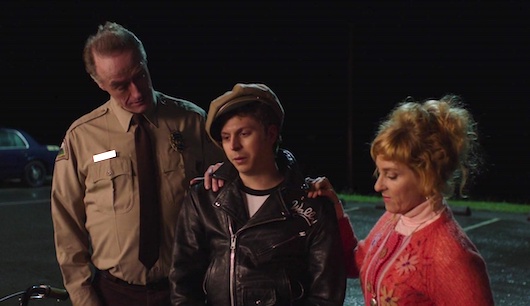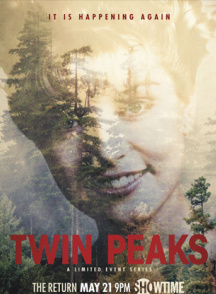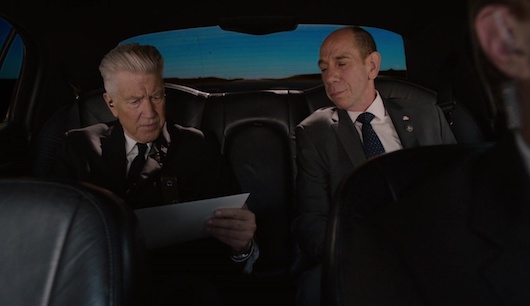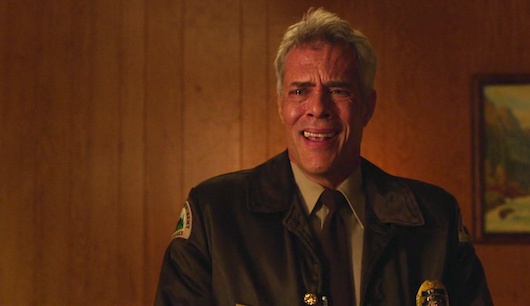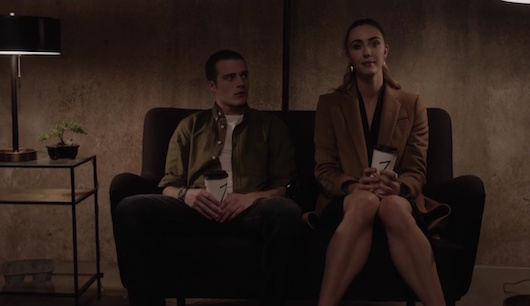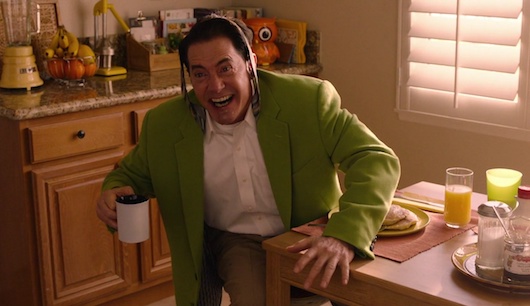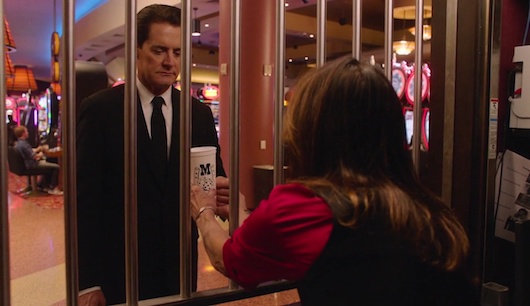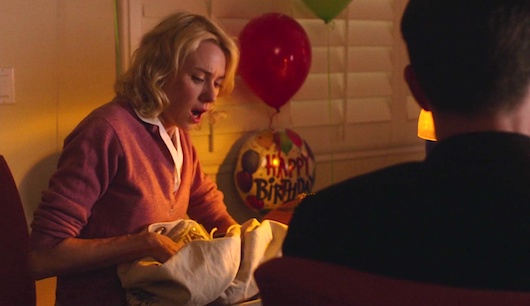 TV
TV In Which We Enter The Life Of A Doug
 Tuesday, May 30, 2017 at 10:53AM
Tuesday, May 30, 2017 at 10:53AM The following review covers episodes three and four of Twin Peaks: The Return.

Hello!
by ELEANOR MORROW
Twin Peaks: The Return
creators David Lynch & Mark Frost
Showtime
Watching David Lynch the actor gives you a basic idea of why David Lynch the director is so great. The only other all-time directors who were as skilled in front of the camera were Orson Welles and John Cassavetes. Welles often seemed distracted onstage, and sometimes was forced to play roles that did not really suit him for one reason or another. Lynch never has this problem, since the singular role of Gordon Cole represents a law enforcement side of him that should probably come to pass in the real world. We desperately need an FBI director who knows when to mind his own business.

The type of comedy that Lynch excels at in this role is pretty unusual; it can potentially be described as either the wackiest satire or the most photorealistic farce. Smartly he uses the talents of another understated performer, the late Miguel Ferrer, to play off him as the ideal straight man. In Twin Peaks: The Return, we observe the FBI as an organization taking on many hats. David Duchovny was the only disappointing aspect of this journey: it felt like he was mugging for the camera.

When Cole receives word that Agent Dale Cooper is in a South Dakota prison, he rushes there with Ferrer and Chrysta Bell, the singer with whom Lynch has produced two albums. Bell sayshays like some kind of alien FBI agent, doing the familiar Twin Peaks work of making something beautiful into an absolute nightmare once you look beyond that initial appeal.
A man's return to Earth from another dimension should come as a tremendous relief. Instead Agent Cooper finds himself in the life of a man named Doug, who visits prostitutes. Janey- E (Naomi Watts) is his relieved and angry wife. In other hands the Stranger in a Strange Land routine would seem quite silly and predictable, but MacLachlan surprises with wonderful timing. Twin Peaks: The Return features a lot of characters who are neither particularly perceptive or particularly bright at first glance. Yet we are all promised, as children, a measure of intuition.

The only real lost people are those without that innate quality. Wally Brando (Michael Cera) and Sheriff Truman (Robert Foster) would under other circumstances have enough chemistry to manage the investigation of crimes of their own accord. Cera presents himself in Twin Peaks fresh from the road, and he is perfectly suited for the town, capable as he is of switching from an overly broad view to an overly specific one in the turn of a scene. His mother Lucy (Kimmy Roberson) possesses an innate misunderstanding of the possibilities of cell phones that was as hilarious as anything in these new episodes.

In recent days Twin Peaks' low ratings have cause some critics to sneer, but it is so far ahead of anything else on television that it will probably become popular again much in the same fashion of the original. While the original series was deeply amusing at times, the somber tone of Laura Palmer's death pervaded everything, and the more hilarious elements did not quite cohere with the overall mood being broadcast by the setting and music.
So many years later, no one would dare contradict any of Lynch's creative imperatives. Sorrow, pain, and wonder come and go with differing levels of clarity depending on the image. The resulting atmosphere of Twin Peaks: The Return feels completely new as a result, a vast and unimaginable playground like that of a peculiarly vivid dream.
Eleanor Morrow is the senior contributor to This Recording. You can find her review of the first two episodes of Twin Peaks: The Return here.































